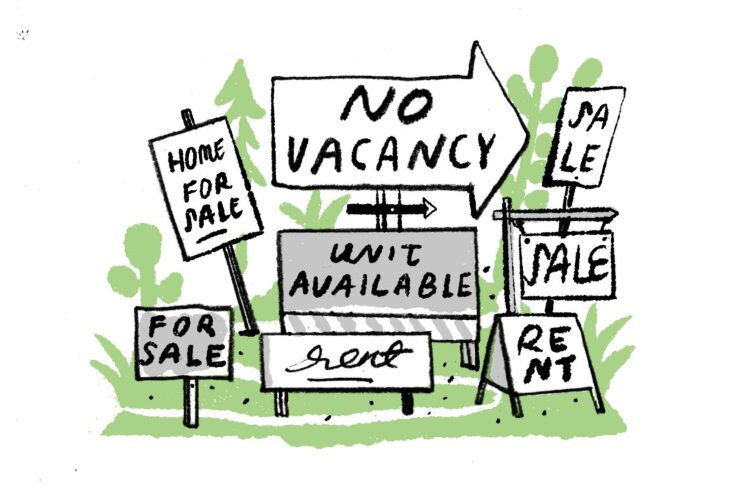
My family moved from Vancouver to Gibsons, on British Columbia’s Sunshine Coast, in 2010, when my wife was pregnant, because of growing unaffordability in the city. More recently, we’ve seen the same with other families moving here, and like us, many are not lower-income residents of Vancouver. Many of them are people who can take their work with them: the folks who can work from home or whose job can move with them. It remains a privileged solution to the problem of soaring real estate costs.
Moving also asks people to break their social ties. If you’re asking people to move to Terrace in northern BC or Fort McMurray in Alberta—wherever things are cheaper—you’re asking them to sacrifice their stability and support network. That’s hard on any family, but particularly on racialized, immigrant, or Indigenous families who may not have cultural community in other locations across the country. It’s asking households to live where capitalism tells them to live, not where the right place for them is.
The young families moving to the Sunshine Coast have had a positive impact on the school district, through rising enrolment, and we’ve seen restaurants and breweries opening. There’s vitality, and I get excited about that. But an influx of residents anywhere impacts the child care and service industries, and folks in other sectors that don’t get paid enough, like hospital aides and education support staff. If they don’t already own homes, they’re being edged out. My wife helped start a daycare here, and we’ve seen the crisis of being unable to find staff because the cost of living is so high. You lose character when that happens, and you lose economic diversity—the people who are making art or doing cultural work, who used to be able to afford to live in a small town like Gibsons. I’ve even heard that some people with relatively high-paying jobs can’t find rentals here.
It can also test what people think the character and nature of a town should be. There’s a lot of charm to a place like Gibsons, a seaside town with beautiful old houses. The town has always focused on some “smart growth” principles, like density focused in the town core. But there is resistance to more radical solutions, like increasing density on single-family lots.
Some folks who move up here want to freeze this place in time—just as it is when they arrive. It’s the same attitude you see in urban areas. It doesn’t matter whether you’re in a single-family neighbourhood in Vancouver or Toronto or Gibsons: people want things to stay the same. But for a community to thrive and remain inclusive, it has to change—or the alternative, at least in Gibsons, is that we sprawl all the way up the mountainside and cut down all the trees. In our neighbourhood, we have half a dozen families within a block who have kids the same age as ours—which is lovely. But we need more housing options. That doesn’t mean the good things about the community will change if we add density or make an effort to ensure housing is equitable and affordable.
We can’t expect others not to want what we have. And yet we do it all the time, trying to pull up the drawbridge behind us. But that approach neglects folks who would be left behind in our communities if we pull up the bridge: racialized folks, lower-income people, who we are simply not doing enough for.
Crises appear suddenly and affect us very quickly, but the ability to solve them is very slow, because the nature of development is slow. But we are starting to see new builds from BC Housing and more purpose-built rentals across the country, many of which are spurred on by government investment and financing. The provincial government is trying to address the housing crisis in a big way, but it will take years to ripple out and start to see the impact. To prevent further housing crises, inflation has to stabilize, and we need to see wages and incomes rise to meet the cost of living. That’s really up to employers. With so much disruption in the labour market, good employers will hopefully realize that people need to be paid what they’re worth in order for them to stay in their communities. I’m cautiously optimistic that we will see a slowing down of the crisis. At least, hopefully, it won’t get worse.
As told to Michelle Cyca.








